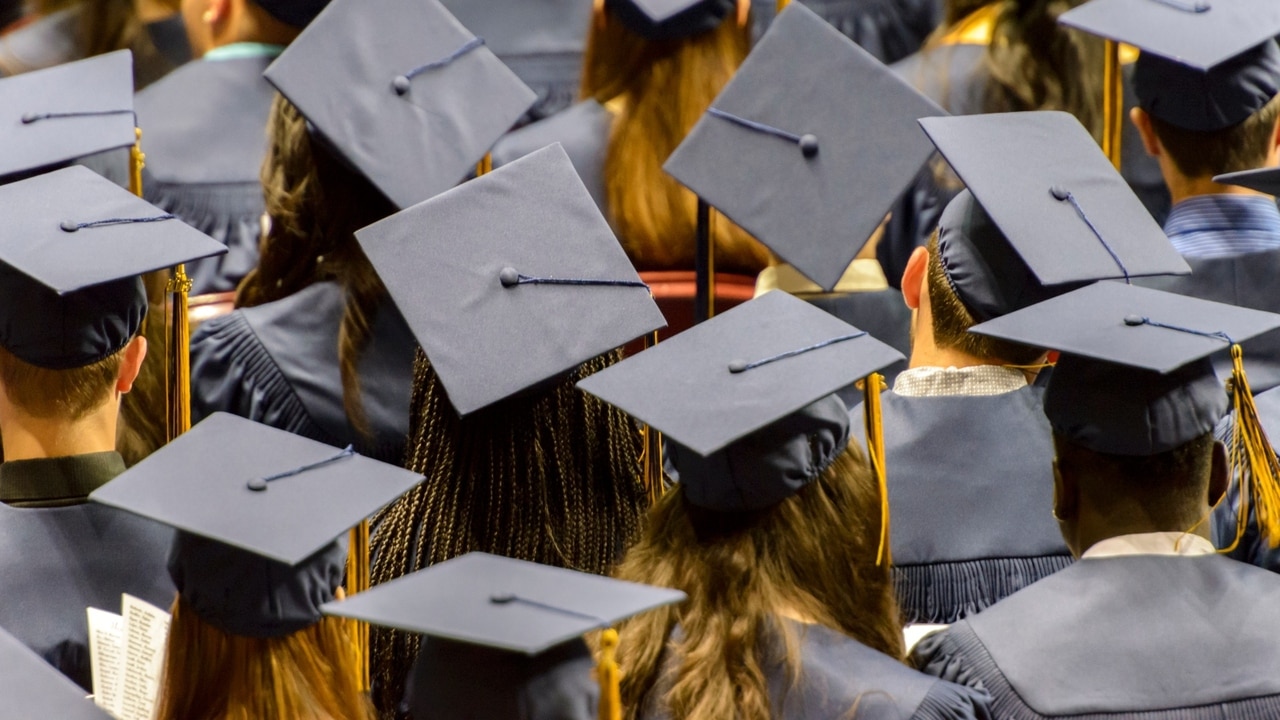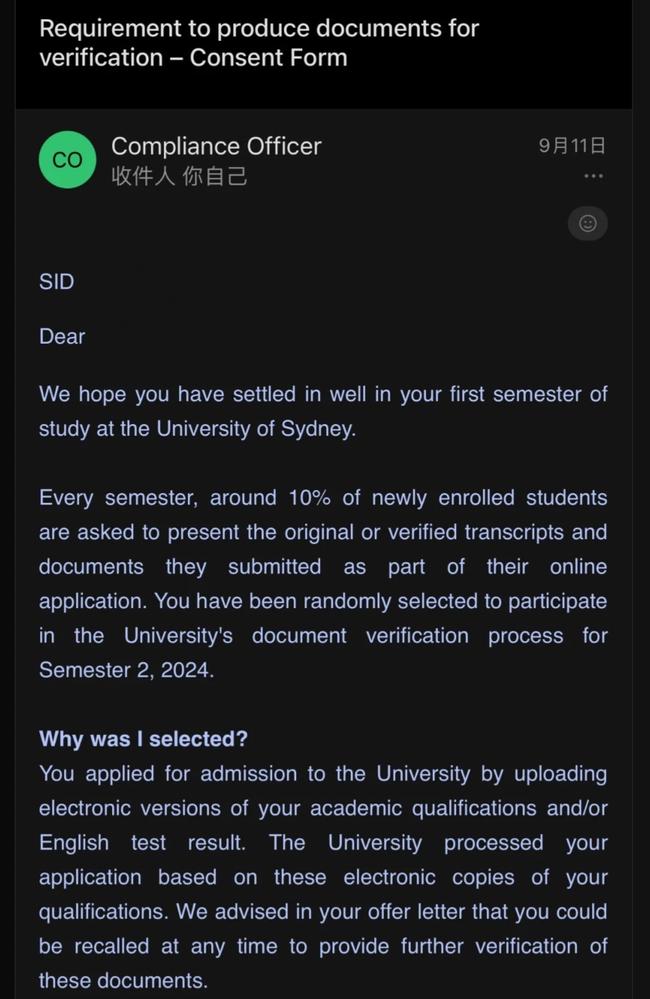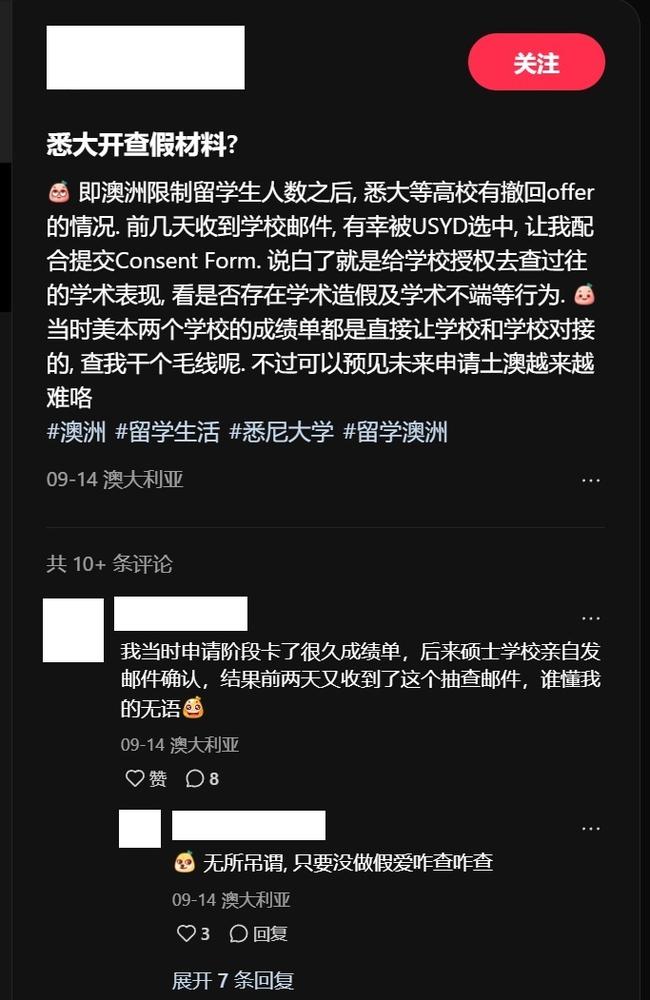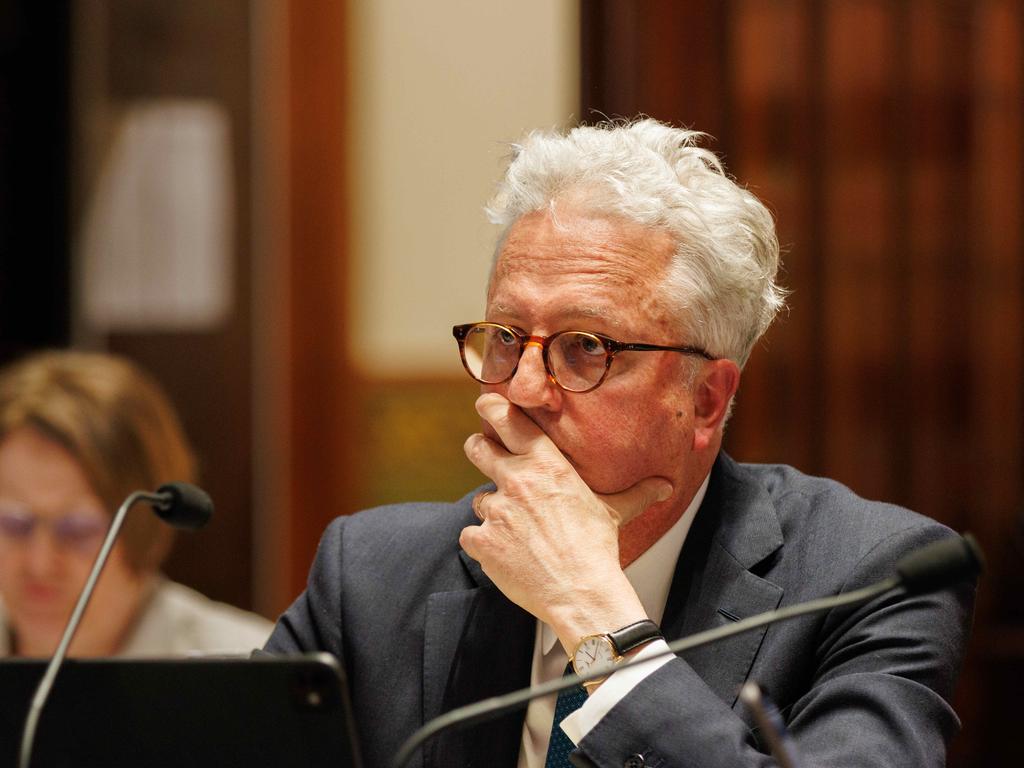‘Why me?’: Chinese students fume over University of Sydney email
An email from the University of Sydney sent to “randomly selected” international students has sparked outrage on Chinese social media.

An email from the University of Sydney sent to “randomly selected” international students has sparked outrage on Chinese social media.
The email, sent from a university “compliance officer” last month, informed recipients that they were required to participate in the university’s “document verification process” for semester two.
“Every semester, around 10 per cent of newly enrolled students are asked to present the original or verified transcripts and documents they submitted as part of their online application,” the email read.
“Why was I selected? You applied for admission to the University by uploading electronic versions of your academic qualifications and/or English test result. The University processed your application based on these electronic copies of your qualifications. We advised in your offer letter that you could be recalled at any time to provide further verification of these documents.”
One masters student, who previously studied in the US, shared the email on social media, questioning why he had been selected and suggesting the crackdown was linked to the federal government’s recently announced caps.

“A few days ago, I received an email from the school, saying that I was fortunate to be selected by USYD, and asking me to co-operate in submitting the Consent Form,” he wrote in a viral post on Xiaohongshu, a popular Instagram-style platform.
“To put it bluntly, it is to authorise the school to check past academic performance to see if there is any academic fraud. [At the time I applied], the transcripts of [my two previous] American universities were directly sent between the schools, so why would they check me? However, it’s foreseeable in the future that it will be more and more difficult to apply to TuAo in the future.”
TuAo is a popular online Chinese slang term used affectionately by international students, which literally translates as “unrefined, backwards Australia”.
The student added, “Apparently, Chinese-speaking teachers have already called schools for undergraduates in China.”
A number of social media users reported receiving similar emails.
“I’m the same haha — I can’t even win the lottery!” one woman said.
“I was stuck with my transcript for a long time during the application stage,” another student wrote. “Later, the masters school personally sent an email to confirm it. As a result, I received this random check email two days ago. Who can imagine my shock?”
A third said, “TuAo is really outrageous.”
One woman warned, “Nowadays, schools are very strict about academic misconduct, and there are many retrospective investigations.”

A University of Sydney spokeswoman said the compliance checks were standard practice and consistent with other Australian universities, adding the rate of fraud detected was very low.
“To ensure the integrity and quality of our applications process, every semester we ask approximately 10 per cent of newly enrolled international students to present the original or verified transcripts and documents they submitted as part of their online application,” she said in a statement.
“Students are randomly selected across undergraduate and postgraduate degrees. This is in addition to robust checks during the application process, when we carefully review all documents submitted, including English proficiency tests and academic results. Our processes are consistent with those at other Group of Eight universities to ensure only bona fide students with genuine academic documents are admitted.”
She added, “This kind of fraud is very rare among our students, occurring at a rate of approximately 0.4 per cent. If documents or transcripts are proven to be false, we take appropriate action, which may include cancellation of enrolment.”
University of Sydney has Australia’s largest international student population in Australia, with domestic enrolments edging closer to becoming a minority.
International students now make up 46 per cent of total enrolments — 31,429 out of 68,421 — and 57 per cent of postgraduates, according to the university’s most recent annual report tabled in NSW parliament in May.

University of Sydney was the only NSW institution to record a surplus in 2023, with operating revenue up 17 per cent to $3.42 billion, partly driven by a $69 million increase in student fees driven by higher international enrolments.
International students account for 78 per cent of the University of Sydney’s student revenue.
The federal government in August made its long-awaited announcement on international student caps, revealing Australia would cut its intake by nearly 20,000 to 270,000 in 2025, following record-high enrolments this year.
Figures in the year to May 2024 reported there were 810,960 international student enrolments — a 17 per cent increase on 2019 pre-Covid figures — across universities and VET courses, with commencements also 16 per cent higher at 289,230 in the same period.
“I make no apology for making sure that we’re returning migration levels to pre-pandemic levels, and this is part of that,” Education Minister Jason Clare said at the time.
The cuts will be felt most sharply by the Group of Eight, the lobby group comprising the nation’s top research universities, including University of Sydney, which will have their allocations slashed by 28 per cent to 57,950 students.
Many have warned of job losses as a result of the cuts.
“The flow of international students has helped create one of the finest higher education systems in the world despite its challenges,“ University of Sydney Vice-Chancellor Mark Scott told a Senate hearing in August.

Professor Scott warned the caps posed “not just educational cost … but very significant economic cost”.
“The economic analysis looks clear,“ he said.
“For every two international students we stop coming to the country, we could expect to see one domestic job lost. The unprecedented, sweeping powers sought in this legislation loom as an extraordinary act of self-harm to the Australian economy and one of our most vibrant and successful export industries.”
It comes after a report this week showed most of Australia’s top universities plunging in the latest global rankings.
The Times Higher Education survey, which ranks 2860 universities across the world on a range of metrics from teaching to research, shows just one Australian university, the University of Melbourne, made it into the world’s top 50, and most slipped in their respective positions on the ladder.
Australian National University in Canberra fell to 73rd spot from 67th, the University of Sydney sits at 61 from 60, the University of Adelaide moves down to 128 from 111 and the prestigious University of Queensland retreated seven places to 77 from 70.
“Australian higher education stands on the brink of a long-anticipated dive in its international standing, after almost half the sector went backwards in this year’s Times Higher Education World University Rankings,” the report, released on Wednesday, states.
Times Higher Educations’ chief global affairs officer, Phil Baty, said Australia was also losing ground in the field of international research collaboration.
More Coverage
“International student caps may further erode income for some top institutions [and] diminish Australia’s world-leading reputation as an open and internationally facing sector,” Mr Baty warned.
— with NCA NewsWire






